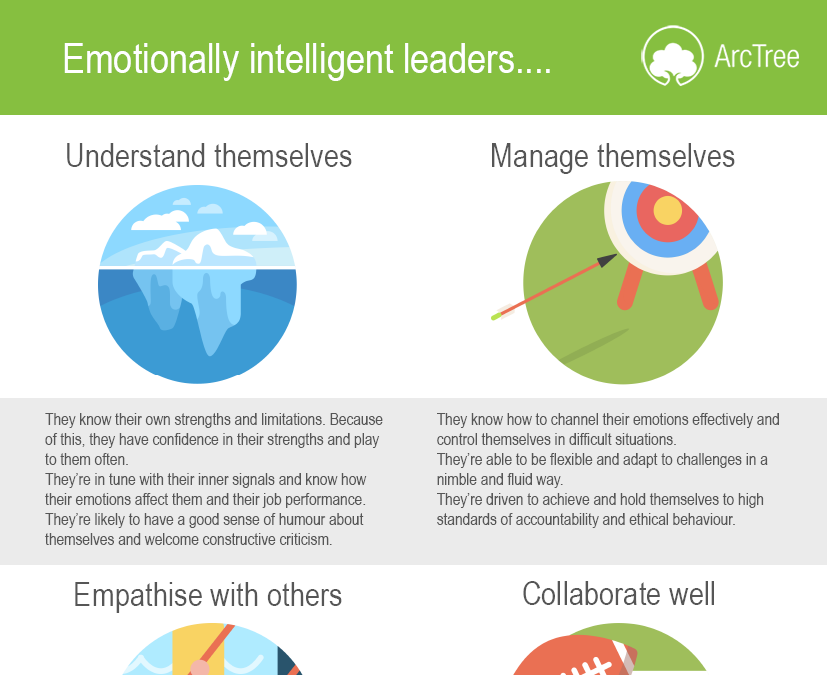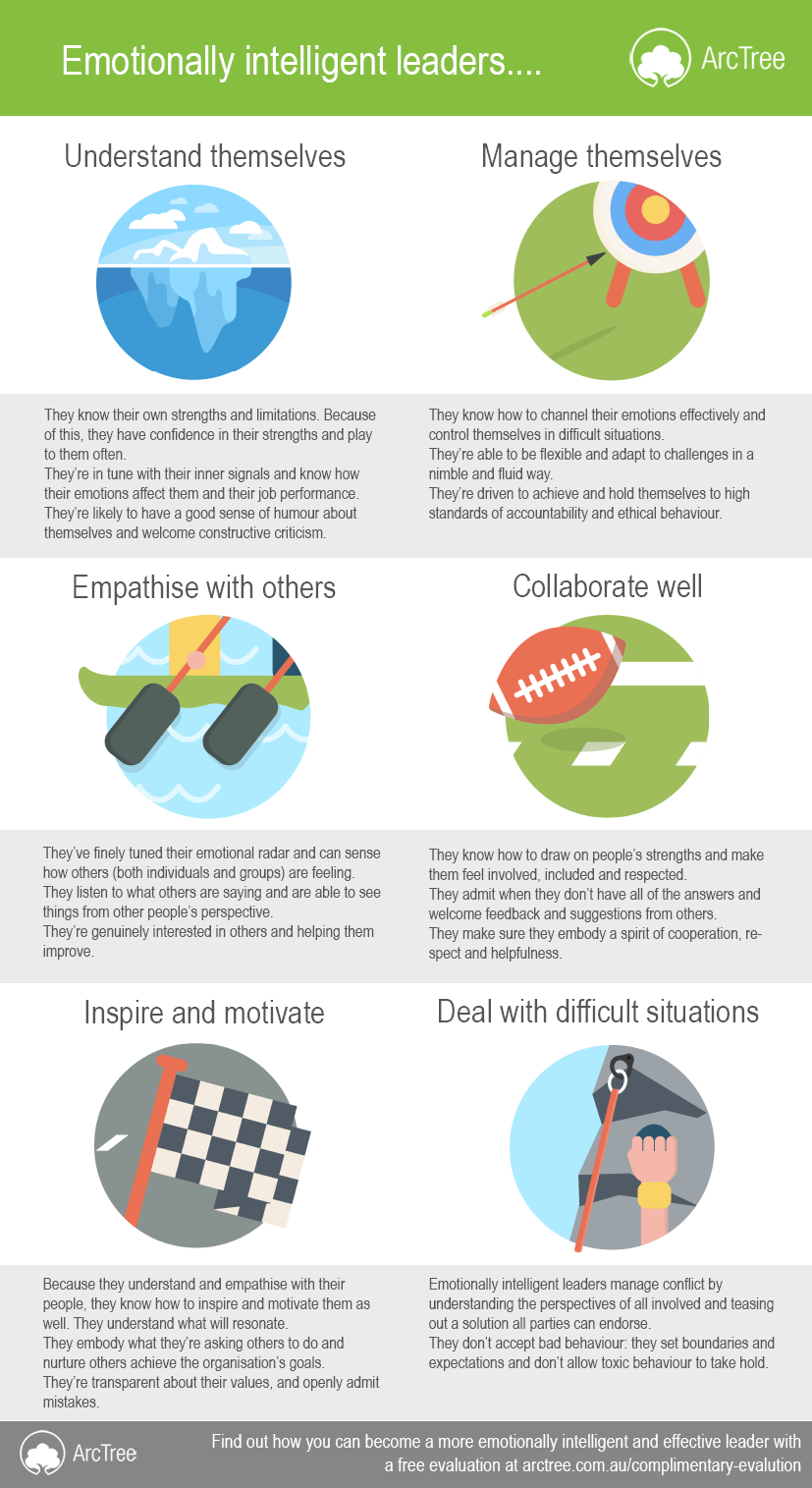By Alan Chambers, ArcTree Managing Director
Who is the best leader you’ve ever known personally?
Chances are, it wasn’t someone who made you feel you had to do what they said… or else.
Or someone who was incredibly experienced in their field but had poor people skills. Or the person you never actually saw because they were too busy doing high-level leadership things to spend time with their employees.
More likely than not, it was someone with high emotional intelligence. Who inspired you and helped you grow and improve, or took a special interest in your development, coaching and mentoring you. Who helped you feel safe at work, and motivated to do your best. Or someone who included her teams in decision-making, so everyone was invested in giving their best and succeeding.
So, why aren’t more leaders like that? Why do we still have leaders who don’t know how to lead their teams effectively?
The problem: Emotional Intelligence (EI or EQ) is still seen as a ‘soft’ skill
The problem is that, despite all of the overwhelming evidence to the contrary, some people still believe that Emotional Intelligence (EI or EQ) is a nice, warm and fluffy type of thing that’s good to have… but not essential.
At the end of the day, many organisations still hire leaders based on technical expertise, experience and general intelligence (IQ), and don’t take emotional intelligence into account at all. Which is strange, given that numerous studies have shown that one of the most critical factors driving leadership and organisational success is… emotional intelligence.
Stephen Covey, author of The 7 Habits of Highly Effective People, puts it this way:
“Research shows convincingly that EQ is … many times more important (than IQ) in leadership roles. This finding is accentuated as we move from the control philosophy of the industrial age to an empowering release philosophy of the knowledge worker age.”
The evidence
Daniel Goleman is one of the most influential and well-known thought leaders when it comes to EI. Less well known are John Mayer, Peter Salovey and David Caruso, who were actually the first people to come up with a psychometric model and methodology for measuring EI.
They, along with many others, have presented numerous studies that show the bottom-line, dollars-and-cents impact of emotionally intelligent leaders. Here’s just a few of them:
At PepsiCo, when they focused on selecting executives with strong emotional intelligence, those people outperformed their colleagues and delivered a 10% increase in productivity, $3.75m added economic value, an 87% decrease in executive turnover, and over 1000% return on investment.
Global executive search firm Egon Zehnder analysed the correlation of three main candidate variables (experience, IQ and emotional intelligence) with manager performance on the job. They found that when managers excelled in experience and IQ but had low emotional intelligence, their failure rate was as high as 25%.
However, the people with high EI combined with at least one of the two other factors (experience or IQ) only failed in 3%-4% of the cases.
In other words, emotional intelligence coupled with high IQ or very relevant experience was a very strong predictor of success.
A recent study by leadership consultancy KRW International found that CEOs whose employees gave them high marks for integrity, responsibility, forgiveness and empathy had an average return on assets of 9.35% over two years. CEOs who had low ratings averaged only 1.93%.
Supervisors in a manufacturing plant received training in emotional competencies such as listening skills and employee enablement. Lost time accidents were reduced by 50%, formal grievances were reduced from 15 to 3 per year, and the plant exceeded productivity goals by $250,000.20.
In another plant, supervisors received similar training and production increased by 17%. Supervisors who didn’t complete training didn’t achieve any increase in production.
The Emotionally Intelligent leader
So, what does an emotionally intelligent leader look like? Let’s take a look at some of their top qualities.
The future
How will we move away from the belief that results come from technical skills, experience and ability alone and bring emotional intelligence in to play when selecting and developing effective leaders?
I believe it will happen when we’re willing to accept that what is still considered a relatively new skill set – emotional intelligence – is, in fact, a key ingredient in organisational success.
The work environment is changing and it’s no longer acceptable to have people at the helm who can’t relate to their people, manage their own behaviour and empathise with, motivate and inspire their teams. And this becomes more and more important as Millennials enter the workforce and insist upon cultures of collaboration, transparency and integrity.
If you’d like some help understanding your own or your team members’ emotional intelligence and how to improve, we’d be happy to help. You can get started right now with a free evaluation to assess your – or their – emotional intelligence and development areas.













